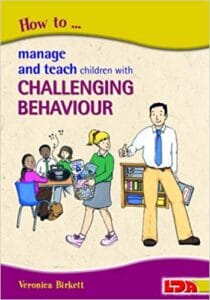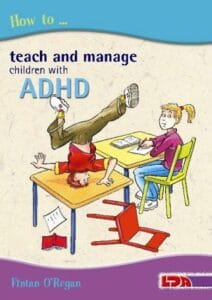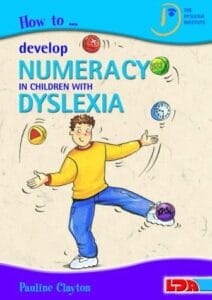10 Signs your Child May Have Special Educational Needs (SEN)
As caring parents, we are constantly dedicated to giving our children nothing but the best, especially when it comes to their education.
Nevertheless, some kids may encounter hurdles that demand extra help to flourish in a learning setting.
It’s vitally important to identify the early signs of special educational needs (SEN) in order to guarantee our children receive the necessary support.
Here are 10 key signs to look out for:
1. Behavioural Challenges
Behavioural challenges that cannot be explained, like frequent tantrums, aggression, or trouble socializing with other children, may indicate that your child has underlying learning difficulties.
Children with SEN might show their frustration by displaying behavioural issues when they find it hard to keep up with their classmates academically or face difficulties in communication.
2. Delayed Milestones:
If your child is struggling to meet the expected development milestones, such as speech and language skills, physical coordination, or cognitive abilities, it could be an indication of SEN.
It’s essential to reach out to professionals for guidance if you notice that your child is significantly behind their peers in these areas.
3. Difficulty with Communication:
Children who have SEN might encounter difficulties when it comes to communicating effectively or comprehending others.
If your child is consistently struggling with speech and language development, such as having trouble pronouncing words, a limited vocabulary, or finding it hard to follow instructions, it could mean that they require some extra support.
4. Struggles with Reading, Writing, or Math:
If your child is consistently struggling with essential skills such as reading, writing, or math, it could be a sign that they have SEN.
It’s important for parents to consider the possibility of SEN and to explore specific interventions, even if their child receives regular classroom instruction.
By addressing these difficulties early on, we can provide tailored support to help them succeed.
5. Inconsistencies in Attention and Focus:
If your child has attention deficit disorders or other learning disabilities, they may face challenges when it comes to staying focused and paying attention in the classroom.
If you notice that your child consistently has difficulty concentrating on tasks, finishing assignments, or following instructions, it could be a sign that they have SEN.
6. Social Isolation
Facing social challenges associated with SEN may manifest as difficulty in forming and maintaining friendships for children.
Navigating social interactions can be particularly challenging for children with SEN, resulting in feelings of isolation and low self-esteem.
It is important for parents to be aware of these signs and provide appropriate support for their child’s social development.
7. Sensory Sensitivities:
If your child shows signs of being exceptionally sensitive or unresponsive to certain sensory experiences like light, sound, touch, or taste, it could indicate that they have special educational needs related to sensory processing difficulties.
8. Poor Organisational Skills:
Children who have SEN might face challenges when it comes to being organised, which can have an impact on their ability to handle tasks, assignments, and daily routines.
If your child tends to forget their homework, misplace their belongings, or struggle with managing their time, it could be a sign that they require extra assistance.
9. Limited Adaptive Skills:
A child’s independence greatly relies on their ability to handle self-care, hygiene, and everyday tasks. When your child consistently struggles to acquire these skills, it could indicate that they have special educational needs that call for specific intervention.
10. Parental Intuition:
Trust your instincts when it comes to your child’s development and academic progress. If you have a gut feeling that something might be off, it could be a strong indicator.
Don’t hesitate to reach out and communicate openly with teachers, school professionals, and healthcare providers.
Working together, you can address any concerns and determine the best course of action for your child, including SEN support
Key Takeaway
It’s really important to spot special educational needs (SEN) as early as possible, so that your child can get the right support they need to reach their full potential.
If you notice a combination of the signs we mentioned earlier in your child, it’s vital to talk to teachers, specialists, and healthcare professionals.
They can carry out a thorough assessment and create a personalized plan to meet your child’s unique needs. Remember, every child is special, and getting the right support early on can really make a big difference in their education
From our Range of SEN Resources
-
Product on sale
 How to Manage and Teach Children with Challenging Behaviour (Paperback)Original price was: £11.99.£8.99Current price is: £8.99.
How to Manage and Teach Children with Challenging Behaviour (Paperback)Original price was: £11.99.£8.99Current price is: £8.99. -
Product on sale
 How to Understand and Improve Boy’s Learning (Paperback)Original price was: £11.99.£8.99Current price is: £8.99.
How to Understand and Improve Boy’s Learning (Paperback)Original price was: £11.99.£8.99Current price is: £8.99. -
Product on sale
 How to Teach and Manage Children with ADHD (Paperback)Original price was: £11.99.£8.99Current price is: £8.99.
How to Teach and Manage Children with ADHD (Paperback)Original price was: £11.99.£8.99Current price is: £8.99. -
Product on sale
 How to Support and Teach Children on the Autism Spectrum (Paperback)Original price was: £11.99.£8.99Current price is: £8.99.
How to Support and Teach Children on the Autism Spectrum (Paperback)Original price was: £11.99.£8.99Current price is: £8.99. -
Product on sale
 How to Develop Numeracy in Children with Dyslexia (Paperback)Original price was: £11.99.£8.99Current price is: £8.99.
How to Develop Numeracy in Children with Dyslexia (Paperback)Original price was: £11.99.£8.99Current price is: £8.99. -
Product on sale
 How to Survive and Succeed as a SENCo in the Primary SchoolOriginal price was: £11.99.£6.99Current price is: £6.99.
How to Survive and Succeed as a SENCo in the Primary SchoolOriginal price was: £11.99.£6.99Current price is: £6.99.
Please share your thoughts in the comments section below if your child has special educational needs.
Join our mailing list
Sign up to our Emailing List & Get the Latest Information and Offers on Resources
Thank you for joining !
Something went wrong.









